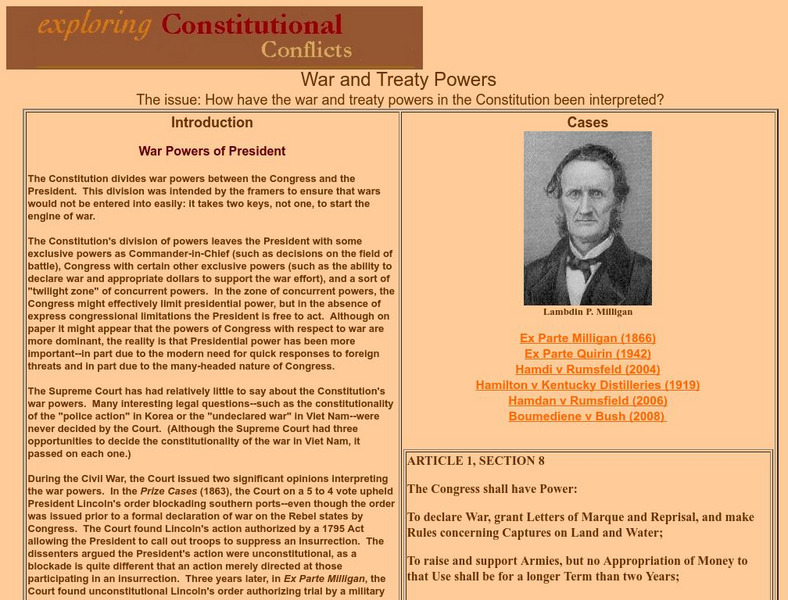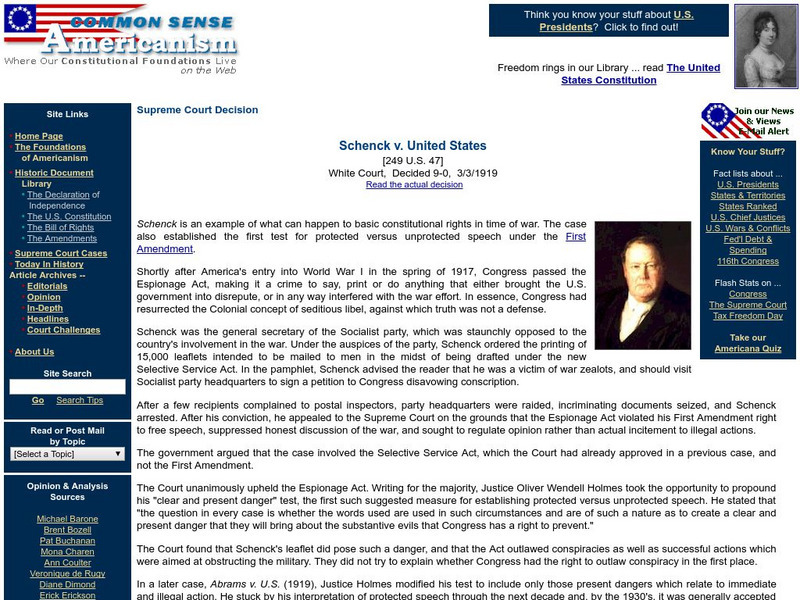University of Missouri
Exploring Constitutional Conflicts: War and Treaty Powers
War and treaty powers are given to both the President and Congress. How have these powers in the Constitution been interpreted? Here's an easy-to-understand guide along with examples of various cases, Articles I and II, and questions at...
US National Archives
National Archives: Lesson Plans Congress, the President, and the War Powers
Examine the power of Congress to make war by studying primary source documents from various wars throughout U.S. history. Students will analyze how the balance of authority between the legislative branch and executive branch has changed...
US National Archives
National Archives: Congress's First Declaration of War Under the Constitution
The War of 1812 was the first war in which Congress used its power of declaring war. Using primary sources such as the Constitution and the War Manifesto of June 3, 1812, young scholars will understand why and how Congress decided to...
Annenberg Foundation
Annenberg Classroom: War Powers
Check out this interactive timeline on War powers in the United States.
Other
Common Sense Americanism: Schenck v. United States
This summary provides the background for Schenck v. United States, a World War I-era Supreme Court case involving free speech. Schenck is an example of what can happen to basic constitutional rights in time of war.





